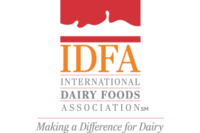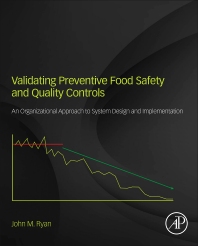
IDFA Playing Offense and Defense on Farm Bill
by Stephen Barlas
Washington Editor
Dairy marketers will be fighting both offensive and defensive battles in the Senate trying to ward off objectionable changes to the dairy section of the Farm Bill passed by the House at the end of July, and trying to improve that section, too.
The three key issues in play in the Senate, when it
finally takes up its bill in late September, will be forward contracting,
new import fees on dairy products and expansion of the Milk Income Loss
Contract (MILC) program, which is a priority for U.S. Sen. Patrick Leahy
(D-Vt.), who one Washington wag calls a “600-pound gorilla” on
dairy issues, and who is not someone Senate Ag Committee Chairman Tom
Harkin (D-Iowa) can ignore.
Leahy already got language stuck in a 2007 budget bill
clearing the way for MILC payments to be substantially increased if final
Farm Bill language allows for that. The House bill extends the MILC program
to 2012, but it does not expand the MILC payments, which dairy marketers
dislike because those payments work at cross purposes with the milk
price-support program.
“Senator Leahy will surely get what he
wants included in a Senate Ag bill, likely a continuation of MILC and
perhaps with some permutations,” acknowledges Connie Tipton,
president and chief executive officer of the International Dairy Foods
Association. Then a House-Senate conference committee will have to
reconcile any differences.
While the IDFA will be fighting against any expansion
of the MILC program, it will be fighting for as broad a forward-contracting
program as possible. Forward contracting allows proprietary milk processors
regulated under the federal milk order program to contract for future
deliveries of milk from producers or their cooperative associations at
prices exempt from minimum federal milk marketing order blend prices.
The IDFA has been trying to convince Congress to
reinstate forward contracting ever since a pilot program ended in
December 2004. The draft House Farm Bill did just that, and made forward
contracting permanent. But the milk cooperatives — which are allowed
to forward contract — fought back.
In the final House bill, forward contracting is
allowed over the five-year term of the Farm Bill, and any contracts signed
in the last years of that term can run beyond that five-year period. So
that is still a big step forward compared to the current situation, but
clearly a compromise, and a step backwards from the draft House bill. The
House also added a number of “producer safeguards” to that
provision, including provisions specifying that contracts must be voluntary
and not coercive, and that producers have the ability to ask the USDA to
review any undesirable behavior.
Christopher Galen, senior vice president of the
National Milk Producers Federation, says his group is fine with the House
compromise and says he hopes “there won’t be any further
wrangling over this in the Senate.”
The new import fee on dairy product ingredients in the
final House bill was authorized by the 2002 Farm Bill, but held in abeyance
because the World Trade Organization said it violated its rules. The House
attempted to fix that WTO problem in this year’s bill. The IDFA will
be trying to convince the Senate to reverse that action, which will be an
uphill battle since Harkin also was chairman of the Senate Ag Committee
when the fee was first written into the law in 2002.
Stephen Barlas has been a full-time freelance
Washington editor for business and trade magazines since 1981.
Compensation Results Now Available from IDFA
Human resource
managers working in plants for public dairy foods companies earn cash
compensation that averages 20 percent higher than those of their
counterparts in private companies. That’s just one example of the
compensation data included in the 2007 Industry Compensation Survey report
released last month by the Washington, D.C.-based International Dairy Foods
Association (IDFA). The survey, conducted and compiled by Salary.com Inc.,
a leading provider of on-demand compensation management solutions, includes
key salary data for 65 job titles, making it the most comprehensive source
of compensation data in the dairy foods industry. “Many of the jobs
included are unique to the dairy foods industry, so this compensation data
will not be found in any other survey,” says Connie Tipton, IDFA
president and chief executive officer. “We’re pleased that so
many companies recognized the value of participating, because the results
represent a wide variety of organizations and geographic regions.”
The 2007 IDFA Industry Compensation Survey report presents data reported
for 65 job titles, from 55 organizations reporting on 84 locations in the
United States. The survey reports pay practices for large and small
organizations measured by revenue and by number of full-time employees. The
survey reports pay practices by ownership type, both public and private
organizations, and includes pay practices within two regions, the Northeast
and Midwest. The data is further divided by sub-regions, which include the
Mid-Atlantic, Great Lakes and Central Plains. In addition, data for two
states, Wisconsin and Pennsylvania, is reported. The cost for the 2007 IDFA
Industry Compensation Survey is $195 for participants, $595 for IDFA
members that did not participate and $795 for non-members that did not
participate. For more information or to order, visit www.idfa.salary.com .
Call for NCI Nominations
The National Cheese Institute (NCI) is now accepting
nominations for its highest honor, the NCI Laureate Award. The award winner
will be recognized at a special ceremony during the 2008 Dairy Forum,
January 20 to 23 in La Quinta, Calif. Nominations are due to NCI by
November 2, and there is no entry fee. Candidates should be business or
academic leaders who have made significant, prolonged contributions to the
development and growth of the cheese industry. The award recipient is
chosen by a panel of industry professionals based on a nominee’s
overall career achievements. “The success and growth of the U.S.
cheese industry is driven by people who dedicate themselves to quality
cheesemaking,” says NCI president and chief executive officer Connie
Tipton. “With this award, we’re looking to celebrate those
individual contributions.” For more information, visit www.idfa.org .
$OMN_arttitle="IDFA Playing Offense and Defense on Farm Bill";?>
$OMN_artauthor="Stephen Barlas";?>






